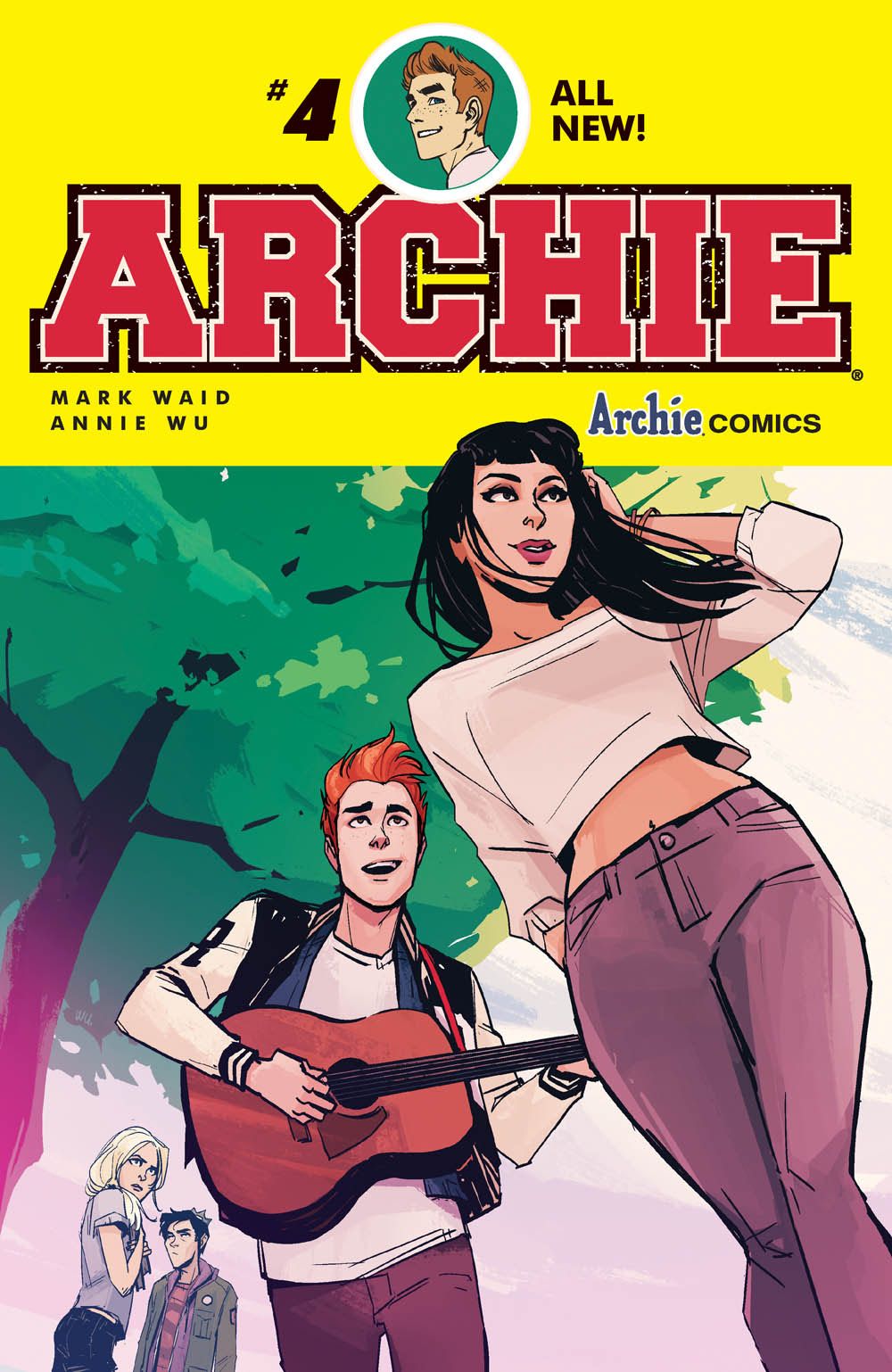Having spent three issues establishing that Archie and the Riverdale gang are still just as relatable, likeable and not all that different from their pre-relaunched selves, Mark Waid steps back and looks at just what happened between Archie and Betty in "Archie" #4. Along with artist Annie Wu, Waid makes a bit of a departure from focusing on the present day cast and flashes back to happier times between Archie and the literal girl next door, right up through their final date and the nature of the self-hyped and hashtagged Lipstick Incident. Though a more heartfelt story than past issues, it still carries plenty of the typical and comical Archie hijinks Waid has already mastered so well.
Waid and Wu almost immediately make an even bigger storytelling departure by breaking the fourth wall and having Archie talk directly to readers before revealing the exact nature of the #LipstickIncident. It's a mild but noticeable shakeup which alerts readers that this issue is going to be something a little different, which it most definitely is. Hijinks aren't the focus but instead a supplement, enhancing Waid's flashback and keeping the story from just being a standard teenagers-in-love trope. It also sets a more serious and emotional tone than seen in the series thus far, and it's a refreshing switch that takes advantage of these characters' makeovers; the moments captured just would not have had the same emotional impact if told with the old Archie house style.
The story takes a heart-wrenching turn when Waid turns it into a cautionary tale about the importance of staying true to oneself. The humor remains, but it's present atop an underlying sense of foreboding, and the laughs genuinely come with a sense of guilt; the couple's fate is already known, but the journey there remains an emotional one. The humor gives way to sentiment as the story progresses, and much of it becomes wordless by this point -- another scripting advantage made more workable by the makeover -- and Wu effectively chronicles the breakdown of a relationship with a true sense of sadness and sorrow. Collectively, Waid and Wu pull off a difficult trick: telling an Archie story that's so different, yet still feels so Archie-like.
Serious or not, Waid and Wu know the makeover doesn't mean "Archie" can or should be turned into a pure soap opera, so they don't make it all about teen angst; there is still plenty of teenage tomfoolery, too. There's a rather shocking dose of the same in the story's very first panel, before Archie begins to tell the tale of his and Betty's breakup. Waid supplies the circumstance, and Wu executes it with a slapstick and slightly cartoonish bent, a slant that both evokes the same feel as the classic Archie look but does so with a fresh interpretation. Readers who might have just gotten used to Fiona Staples' smoother look are now asked to acclimate to Wu's rougher lines, but her style works fine for scenes containing shenanigans as well as smooching.
Wu captures a more understated sense of Archie's clumsy obliviousness later on that helps lift the story from the rather somber direction it takes, utilizing a series of classic gags in a cleverly structured page that's both a nod to old school laughs as well as a play on the new look of the franchise. "Archie" #4 continues the success of the title's new look, and its departure from this template shows just how effectively the reimagining lends itself to more modern and varied storytelling techniques.

